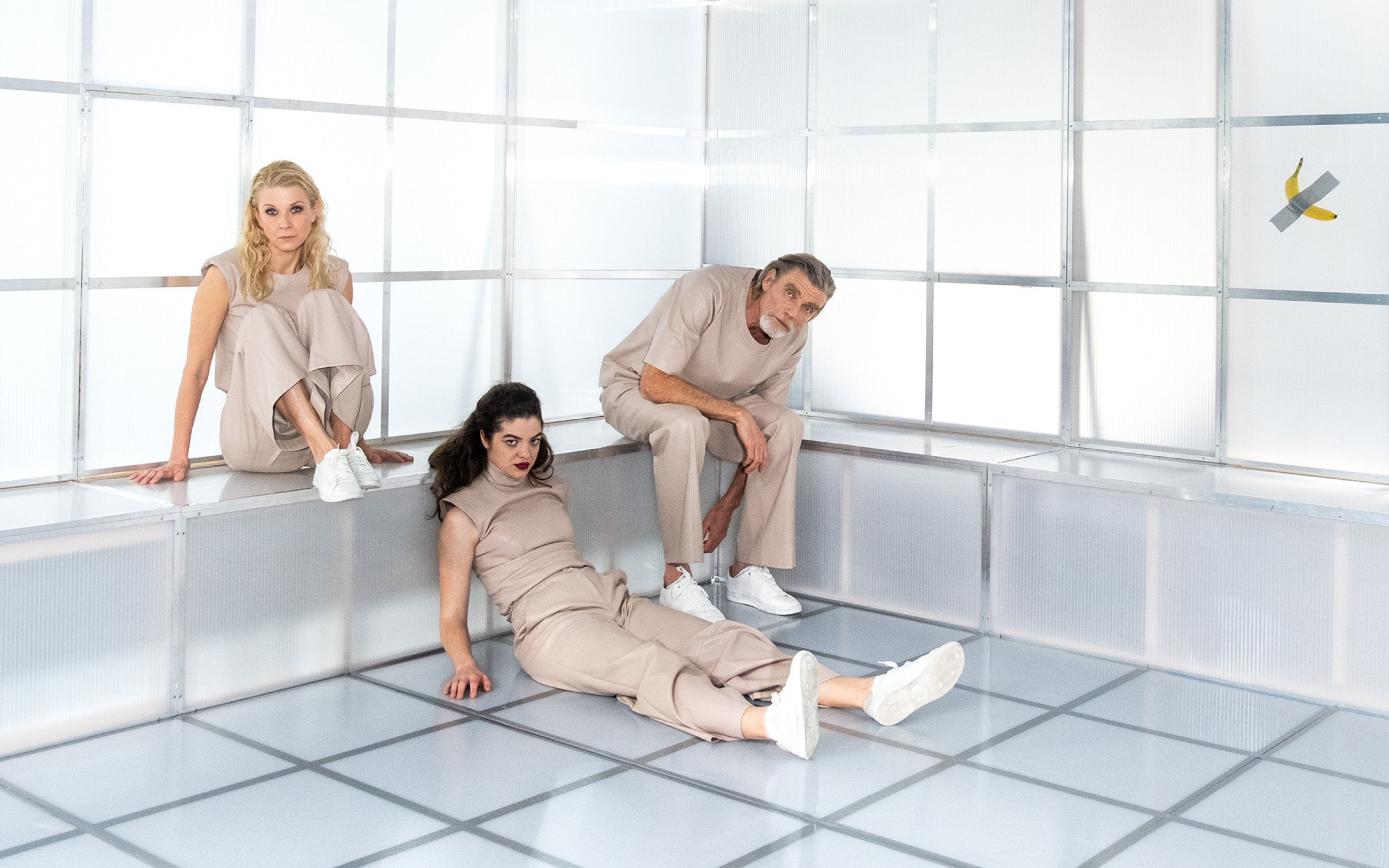Jean-Paul Sartre
No exit
Garcin, Ines and Estelle are dead. They find themselves in a strange room with no windows, a locked door and a doorbell that doesn’t function. A mysterious valet tells them that they will stay there forever. They soon realise they are in hell, condemned to eternal cohabitation and psychological torture. None of the trio can shy away from their own past, they are constantly under each other’s scrutiny, searching fruitlessly for consolation and trying to absolve themselves of guilt.
When the door does open, no one leaves the room: escape is impossible.
Huis clos, 1944
Drama
Premiere: 11. January 2024
Performance length is 1 hour and 10 minutes and has no pause.
Creators
Translator
Eva Mahkovic
Director
Jaša Koceli
Dramaturg
Eva Mahkovic
Set designer
Darjan Mihajlović Cerar
Costume designer
Branka Pavlić Guček
Composer
Miha Petric
Language consultant
Martin Vrtačnik
Lighting designer
Boštjan Kos
Sound designer
Tomaž Božič
Photographer
Mankica Kranjec
Actors
Garcin
Boris Kerč
Valet
Gal Oblak k. g.
Ines
Tjaša Železnik
Estelle
Diana Kolenc k. g.

Jean-Paul Sartre, the philosopher, playwright and novelist, is one of the most prominent intellectuals of the 20th century. He is one of the founders of existentialist philosophy, which he established after his return from German captivity in his work Being and Nothingness (1943).
The philosophical one-act play No Exit was first staged in 1944. The existentialist thesis is that man is defined solely by his actions. Everyone is free to decide how to act in life and is therefore morally responsible for one’s actions. However, the individual is not completely free; his freedom is limited by other people. The famous quote “Hell is other people” can be understood both in terms of one’s struggle with one’s own feelings of guilt, bad conscience and responsibility for their evil deeds, and in terms of one’s responsibility towards one’s fellow human beings.



